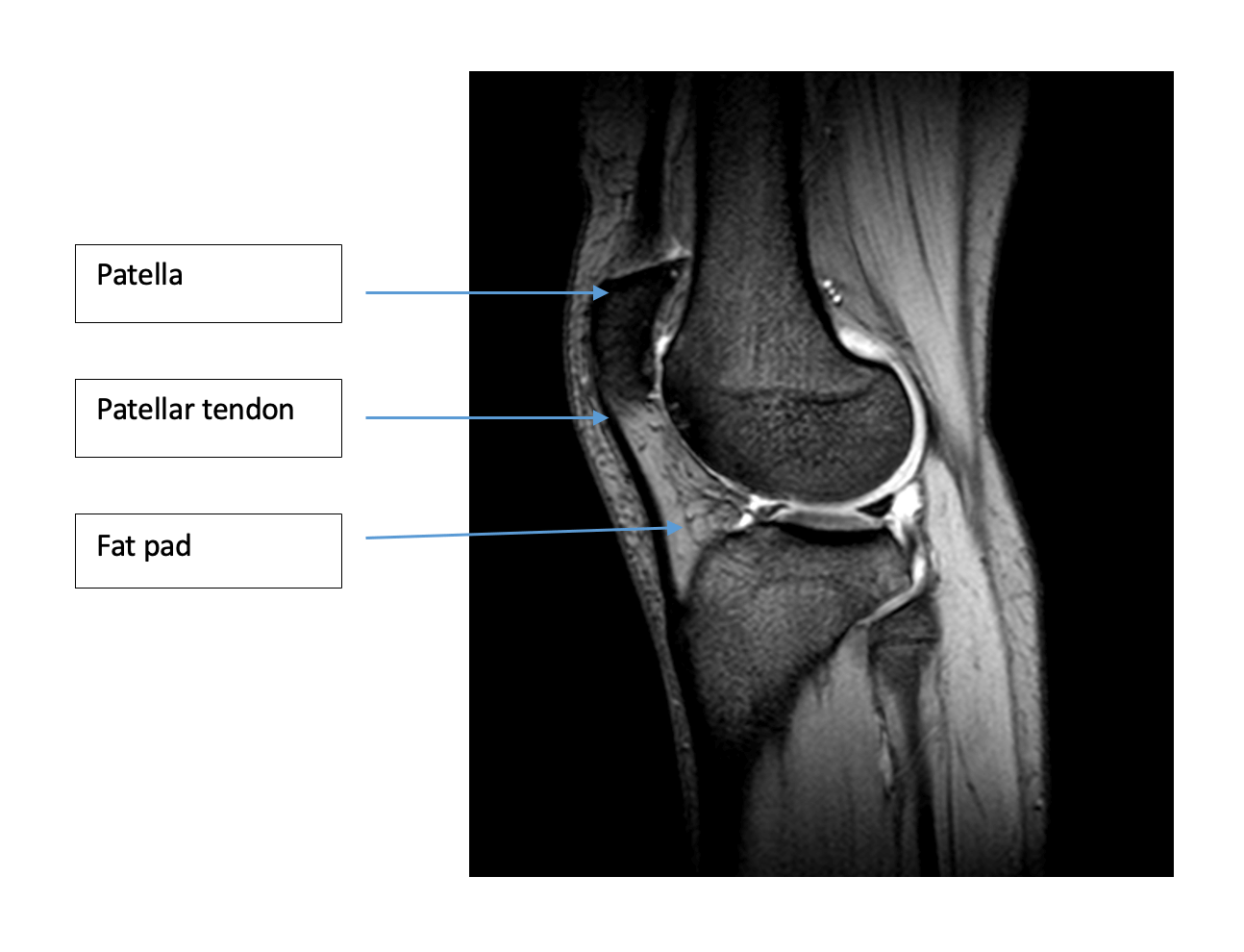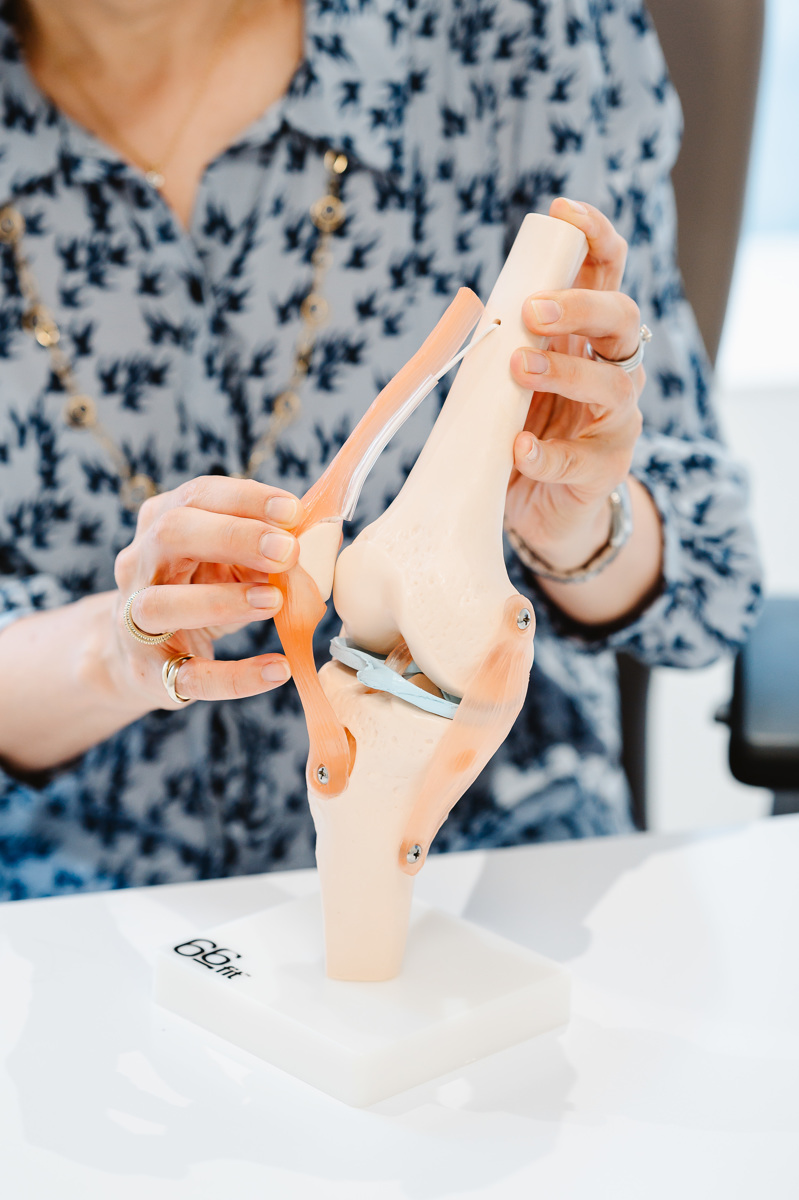
What is Hoffa’s fat pad?
Hoffa’s fat pad is a pad of fatty tissue found in your knee behind your patella tendon. As it is inside the knee, you cannot feel it from the outside.
What does it do?
Nobody really knows what it does but it might help release fluid which aids lubrication in the knee joint, it might reduce friction between the patellar tendon and knee bones and it might help add structure to the knee.
What is Hoffa’s fat pad syndrome?
As the fat pad lies between the patellar tendon and knee bones it is at risk of being squeezed (impingement) leading to swelling (oedema) and the formation of scar tissue (fibrosis). Repetitive small injuries to the fat pad may lead to inflammation and scarring. Some researchers believe that this inflammation could lead to knee pain and a reduced range of motion of the knee.
Why have I developed Hoffa’s fat pad syndrome?
Possible risk factors have been proposed by researchers. These include the kneecap not tracking normally because it is too high or tilted and practicing sports at a high level. This may lead to damage to the fat pad with knee motion.
No link has so far been found with your weight, age, gender, ethnicity or job.


What is the treatment of Hoffa’s fat pad syndrome?
First of all non-operative treatments are tried. These can include physiotherapy, muscle training and taping the kneecap with kinesiotape.
As weight loss can reduce the volume of the fat pad and potentially help reduce the risk of it being squeezed by the patellar tendon and knee bones, this can be an option but there is currently no good evidence to suggest it is a successful treatment option for the pain experienced.
Stem cell therapies do not have good evidence of large scale trials in humans to support their use currently for Hoffa’s fat pad impingement.
Sometimes injections such as a local anaesthetic to numb the pain or steroids to help reduce inflammation can help the pain.
If non-operative treatments do not work then surgical treatments are recommended. These can include removing some of the fat pad in the knee or trying to numb the nerves which supply feeling to the knee. There are not enough large studies in humans to show whether this treatment is successful in a majority of patients.
If you’re experiencing knee pain and suspect Hoffa’s fat pad impingement, don’t hesitate to seek medical advice. Early diagnosis and appropriate treatment can make a significant difference in managing the condition and improving your knee health.
